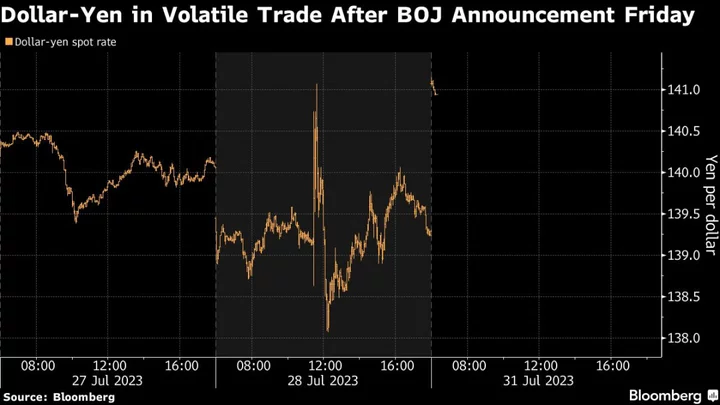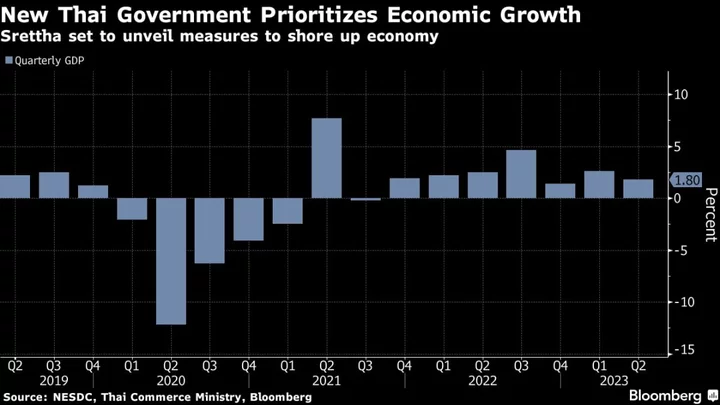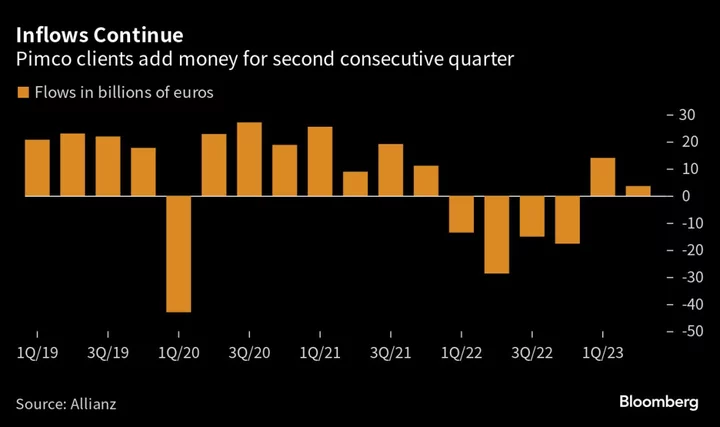Traders buffeted by a swath of central-bank decisions last week are preparing for further volatility amid signs that a new era for monetary policy is emerging.
The US dollar, euro and yen are all in focus Monday, with investors continuing to weigh whether rate hikes from the Federal Reserve and European Central Bank mark the end of their tightening cycles, even as the Bank of Japan modifies its ultra-easy regime with a looser grip on bond yields.
The Australian dollar and British pound are also in the spotlight with their central banks slated to meet on Tuesday and Thursday, respectively. And key reports on US manufacturing and jobs further complicate the trading environment.
The greenback edged lower against most of its G-10 peers in early trading. The yen pushed higher after a volatile session Friday.
“The price action around the central-bank rate decisions has led to a spike in volatility” around euro and yen, said Paresh Upadhyaya, director of currency strategy at Amundi Asset Management. The big moves are a result of “a change in the forward guidance to data-dependent and meeting by meeting,” he said, adding, “I would expect that the RBA and the Bank of England will also follow that path.”
It was certainly a wild end to the week.
The yen soared ahead of the BOJ’s Friday meeting on reports that policymakers would discuss tweaking their yield-curve control policies, and then whipsawed when they did. The currency traded in its widest daily range since April, before ultimately closing the day down 1.2%.
What Bloomberg’s Strategists Say...
“Tightening has begun. The change should provide more support for the yen, but capital flows and structural undervaluation in the currency are already pointing that way.”
— Simon White, macro strategist
For the full column, click here
Meanwhile, the euro tumbled as much as 1.1% on Thursday, the most since March, as ECB President Christine Lagarde stressed that future data releases will determine rate moves, while painting a grim picture of Europe’s dual growth and inflation challenges.
Even the relatively muted message from the Fed, also emphasizing a data-dependent path forward, saw a Bloomberg gauge of the dollar decline the most in almost two weeks.
“The thing that strikes me perhaps most is that despite some very strong moves overall in FX, I’m not sure people have much confidence in their staying power,” said Shaun Osborne, chief foreign-exchange strategist at Scotiabank.
--With assistance from Robert Fullem, George Lei, Anya Andrianova, Michael G. Wilson and Ruth Carson.
(Updates currency moves, adds chart.)









